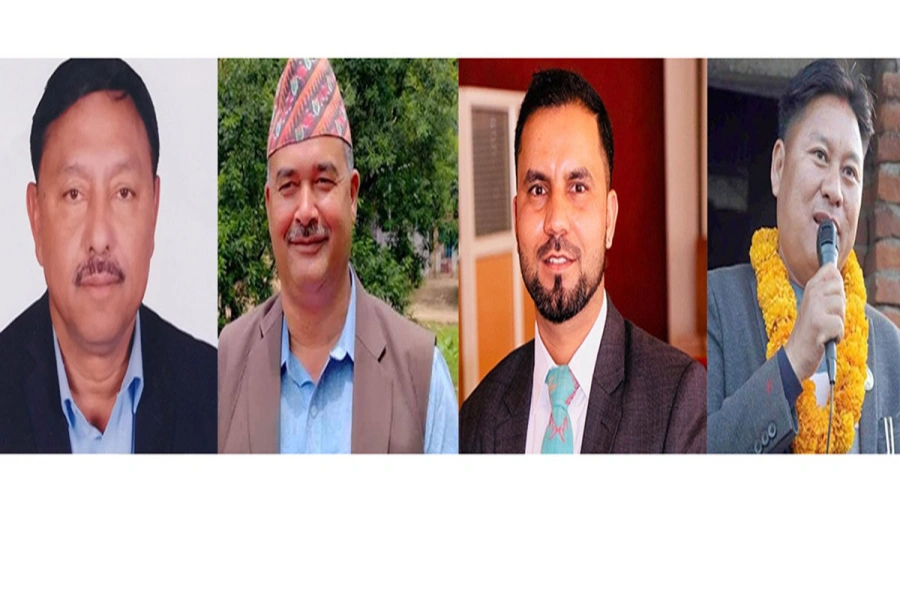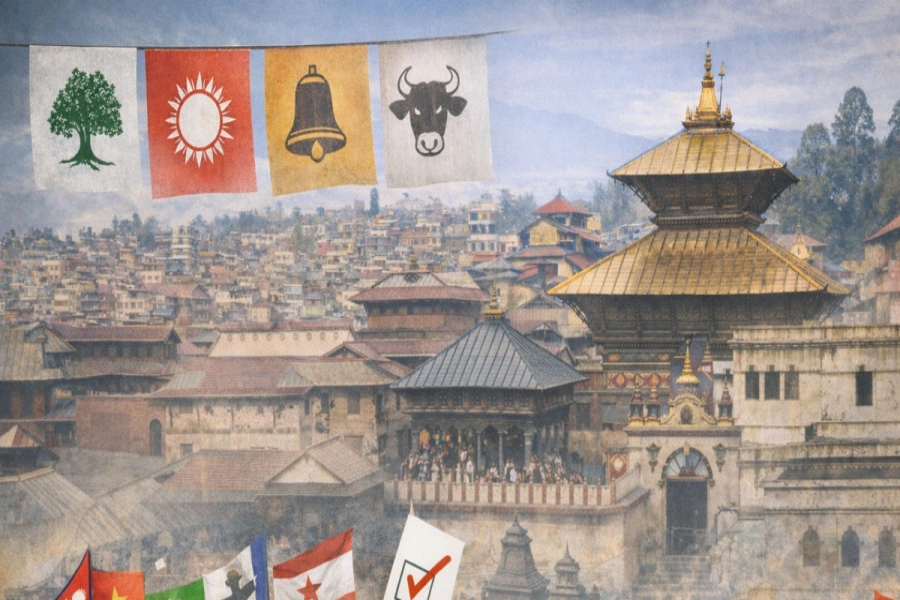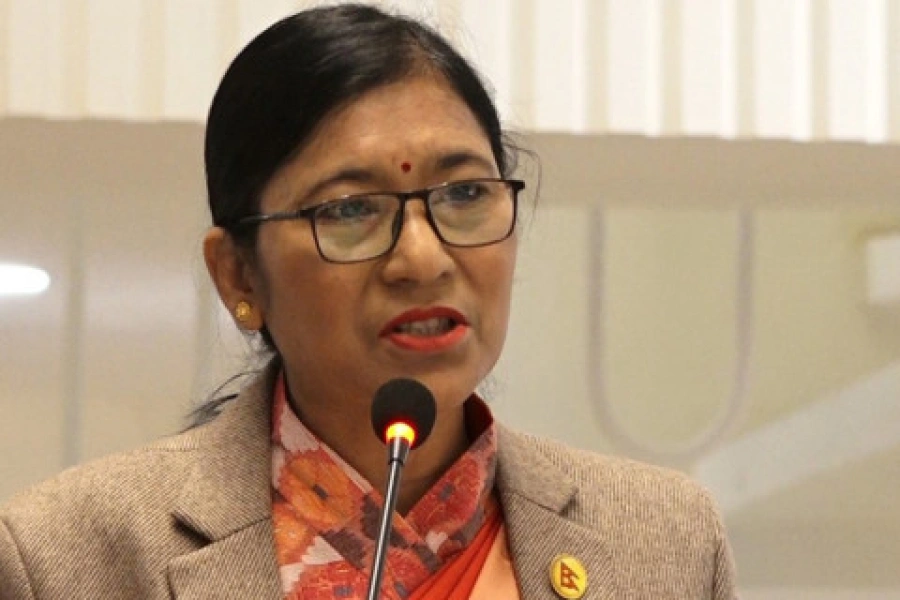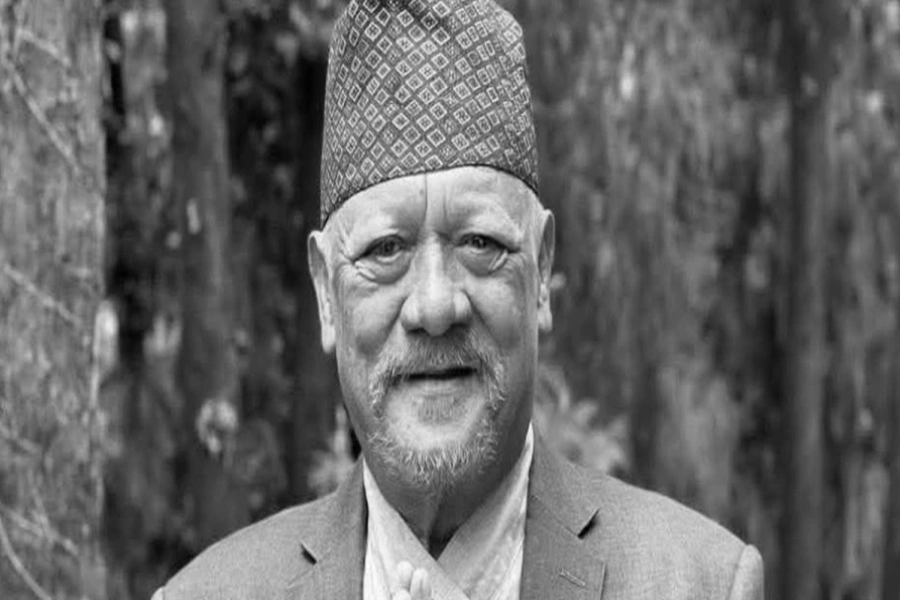The claim that only Nepali constitution has rigid provisions on federal boundary changes is a big lie. The problem is that we tend to cite only Indian constitution.
It’s a strange situation in Nepal. Political parties are debating whether constitution amendment bill, registered in the parliament in April, should or should not be passed. Those who argue it must be do not say why except that it will give a ‘face saving’ to Madhesi forces (now organized under Rastriya Janata Party Nepal) which have been in anti-constitution protests since the promulgation of the constitution in September 2015.
Those who support the bill (halfheartedly)—Nepali Congress, Maoist Center and Rastriya Prajatantra Party—say it is not against ‘national interest’, but do not clarify how. CPN-UML and some other parties claim it does not serve ‘national interest’, but they too do not say how. The whole debate thus sounds farcical.
Madhesi leaders and intellectuals, on other hand, say this bill does not in any way address their demands. If so, why must it be passed, and why make it a precondition to take part in local polls? Ruling Nepali Congress and Maoist Center have it easy. They quickly point to UML as the obstructionist force.
This must have left observers—natives and foreigners alike—wondering what is in Nepal’s constitution amendment bill and what purpose it will serve. So here follows an analysis on its merits (if any) and flaws; whether it is the need of the hour or whether we are undertaking this business of great national importance only to give a ‘face saving’ to some political forces.
Madhes shift
Compared to what current RJPN leaders had demanded during 2015 Madhes agitation and Indian blockade, it must be said they have shown more flexibility now. Back in 2015, they wanted abrogation of Article 289 which bars naturalized citizens from becoming President, Vice-President, Prime Minister, Chief Justice, Speaker of Parliament, Chairperson of National Assembly, Head of Province, Chief Minister, Speaker of Provincial Assembly and Chief of security bodies. This does not seem to be their major concern now.
Himesh Panta wins ‘Comedy Champion’

Back then Madhesi leaders wanted all Tarai districts to be separated from hill provinces and included in Madhes provinces. They have dropped this demand, at least for now.
Madhesi forces then claimed that the constitution bars foreign (read: Indian) women married to Nepali citizens from acquiring Nepali citizenship. In practice, thousands of such women have already acquired Nepali citizenships after constitution promulgation. This has become a non-issue now.
One of the lies RJPN leaders told us all along was that at least on citizenship the new charter is more regressive than the Interim Constitution (2007). The Interim Constitution had this provision on foreign women married to Nepalis: “A woman of foreign nationality who has a matrimonial relationship with a citizen of Nepal may, if she so wishes, acquire naturalized citizenship of Nepal, pursuant to the laws in force.” Current constitution has retained it with alternation of ‘federal law’ in place of ‘laws in force.’
The government of Pushpa Kamal Dahal last September proposed second amendment to placate Madhesi forces. On citizenship, the bill proposed that “foreign women married to Nepali national can acquire marital naturalized citizenship of Nepal as per the federal law, if she wants so, after initiating the process to renounce the citizenship of country of origin.” It proposed to separate parts of Nawalparasi, and whole of Rupandehi, Kapilbastu, Dang, Banke, Bardiya from Province 5. This sparked protests in Butwal and Bhairahawa. The government withdrew the proposal.
What’s in current bill?
The current bill can be considered a soft document but it is also fraught with flaws. The constitution already says “all the mother tongues spoken in Nepal shall be the national language.” Now it proposes to include, on recommendation of Language Commission, all mother tongues of Nepal in the Annex of the constitution. It retains the clause of September bill on citizenship.
It has curtailed rights of local executives to become members of Electoral College. Neither Madhesi nor Pahade leaders have explained why such provisions are necessary and how they will help Madhesi cause.
It allows federal parliament to decide on issues, including on boundaries, which fall under the jurisdiction of provincial assemblies (in the absence of provincial assemblies). This means the federal parliament (since the fate of provincial elections is uncertain) from Kathmandu can tamper with boundaries whether the people of the respective provinces like it or not. Again the current legislature parliament can exercise the powers of federal parliament and also decide on alteration of boundaries. This undermines the rights of people of the provinces.
The intent here seems to be to mess with provincial boundaries right now and leave it as a contested issue for perpetuity. There is also a provision for a Federal Commission to “recommend on matters related to alteration of number and boundaries of the states”. If legislature parliament is to decide everything why do we need the Federal Commission?
Practice elsewhere
What is being tried in Nepal has been mostly discarded elsewhere. In the United States, consent of both federal parliament and state legislature is required to alter the boundaries of the provinces. The US constitution says “boundary between two states may be changed by agreement of the state legislatures, but this agreement must be approved by Congress.” In Brazil, it is mandatory to take the consent of population of concerned state.
Brazilian constitution says that “to merge or form new state, approval of the population” should be taken through “plebiscite” and of Congress “through a supplemental law.”
In Argentina, special legislations should be passed to “create, fix and determine the territory including that of provinces.” In Canada, resolution of the concerned legislative assembly is required. In Austria, “the approval of the affected state” must be acquired. In Germany, revisions of the existing division into Länder (federal state) “shall be effected by a federal law, which must be confirmed by referendum.” (Acknowledgements: the author is thankful to advocate Semanta Dahal for providing this information for the article)
The claim that only Nepali constitution has rigid provision on alteration of federal boundaries is therefore a flagrant lie.
The problem is that we tend to cite only Indian constitution which has relatively flexible provisions on alternation of provincial boundaries. Yes, Article (3) of Indian constitution allows the parliament “by law” to form a new state by separation of territory from any state or by uniting two or more states,” to increase or diminish, or alter boundaries and area of any state. But even there the President needs to take the views of the concerned states.
Indian constitution recognizes “Hindi in Devanagari script” as “official language of the Union,” and promotes “progressive use of the Hindi language for the official purposes of the Union.” Article (351) says “it shall be the duty of the Union to promote the spread of the Hindi language.”
Article (7) of our constitution says “Nepali language written in Devanagari script shall be the language of official business in Nepal” but it also allows provinces to “select one or more national language that is spoken by majority of people in that province as the language of official business, as provided for by the provincial law.”
Our constitution does not promote one language over others. Thus the argument that Nepal’s constitution promotes Nepali language and discriminates against other languages is as flawed.
Reason over emotion
Like the much-debated Madhes mudda, constitution amendment has been made a prestige issue guided more by emotions rather than reason. RJPN leaders seem to be pushing for amendment to show to their constituencies that they are not returning from Kathmandu empty-handed. Ruling Congress and Maoist Center are supporting it in the hope that it will help belittle UML in Madhes and appeal to Madhesi constituencies before upcoming polls.
None of the parties have debated pros and cons of the amendment bill on rational grounds. For example, which clause of the constitution has relegated Maithili and Bhojpuri (the languages majorities of Madhesi people adore, speak and understand) to secondary status?
India merits no comment at this moment because it is mired in serious domestic troubles and it also seems to have realized what is there in Nepal’s constitution. But if the southern neighbor is still concerned, it should tell us in which respect is Nepal’s constitution less progressive than India’s?
Simply because some leaders took stand against constitution in the beginning, or some hill leaders had altercations with some Madhesi leaders during constitution promulgation, or because some parties will lose or win few more seats if the bill fails or passes, or because India was unhappy at the time of promulgation—they are no reasons to either support or oppose the amendment.
A constitution, however imperfect, cannot be a book of jokes. We have held local polls under this statute and are soon going to conduct provincial and federal elections. Let us debate every clause proposed for amendment, whose interest it will serve and how. Reason, rather than emotion, should guide the amendment debate.
mahabirpaudyal@gmail.com







































